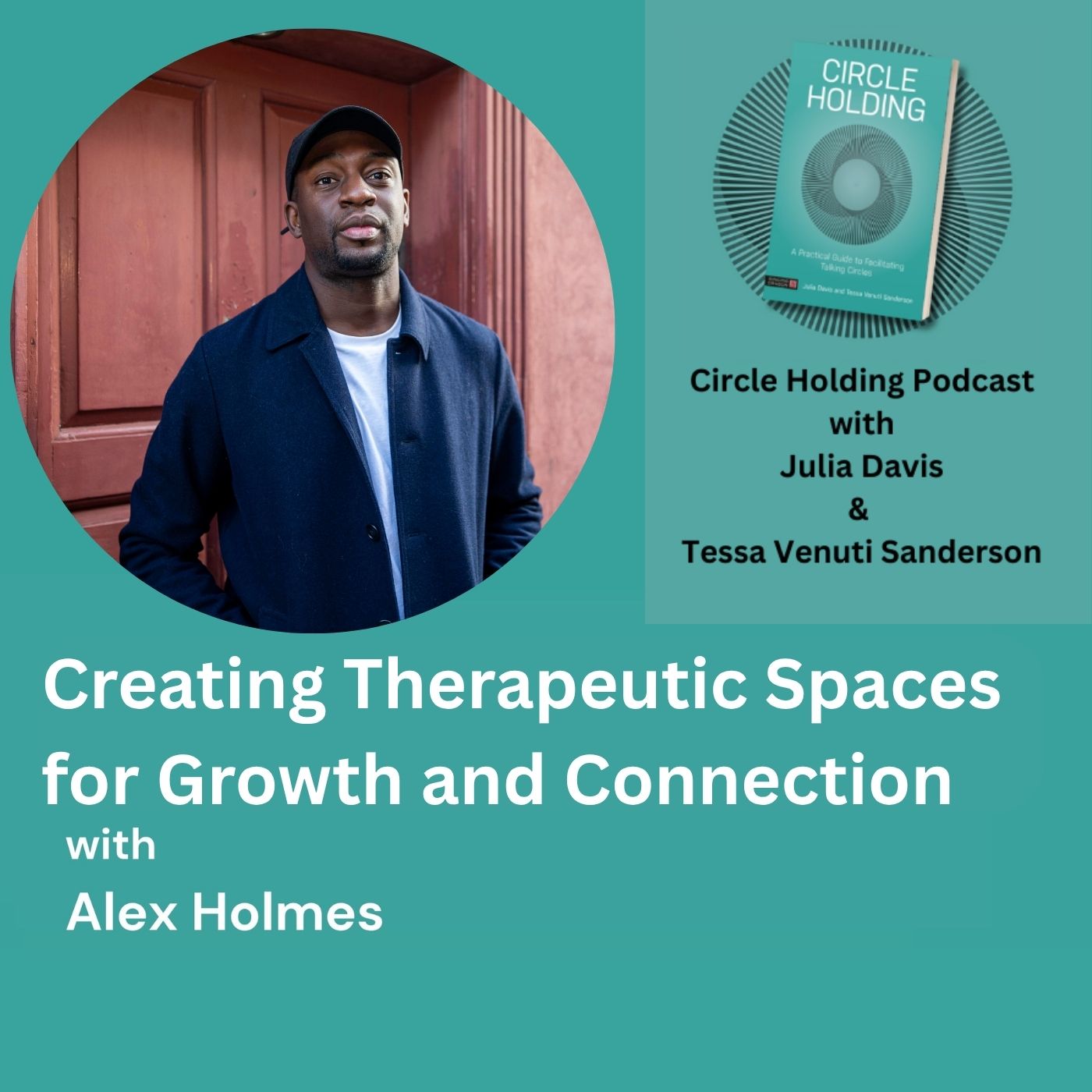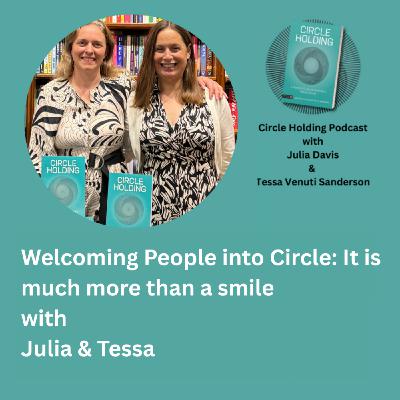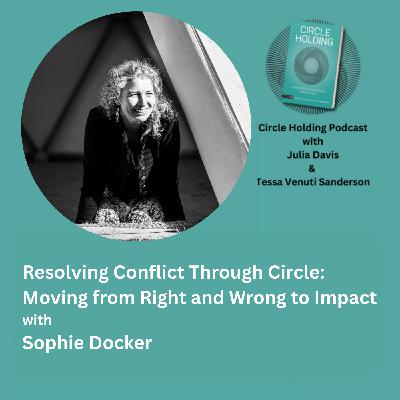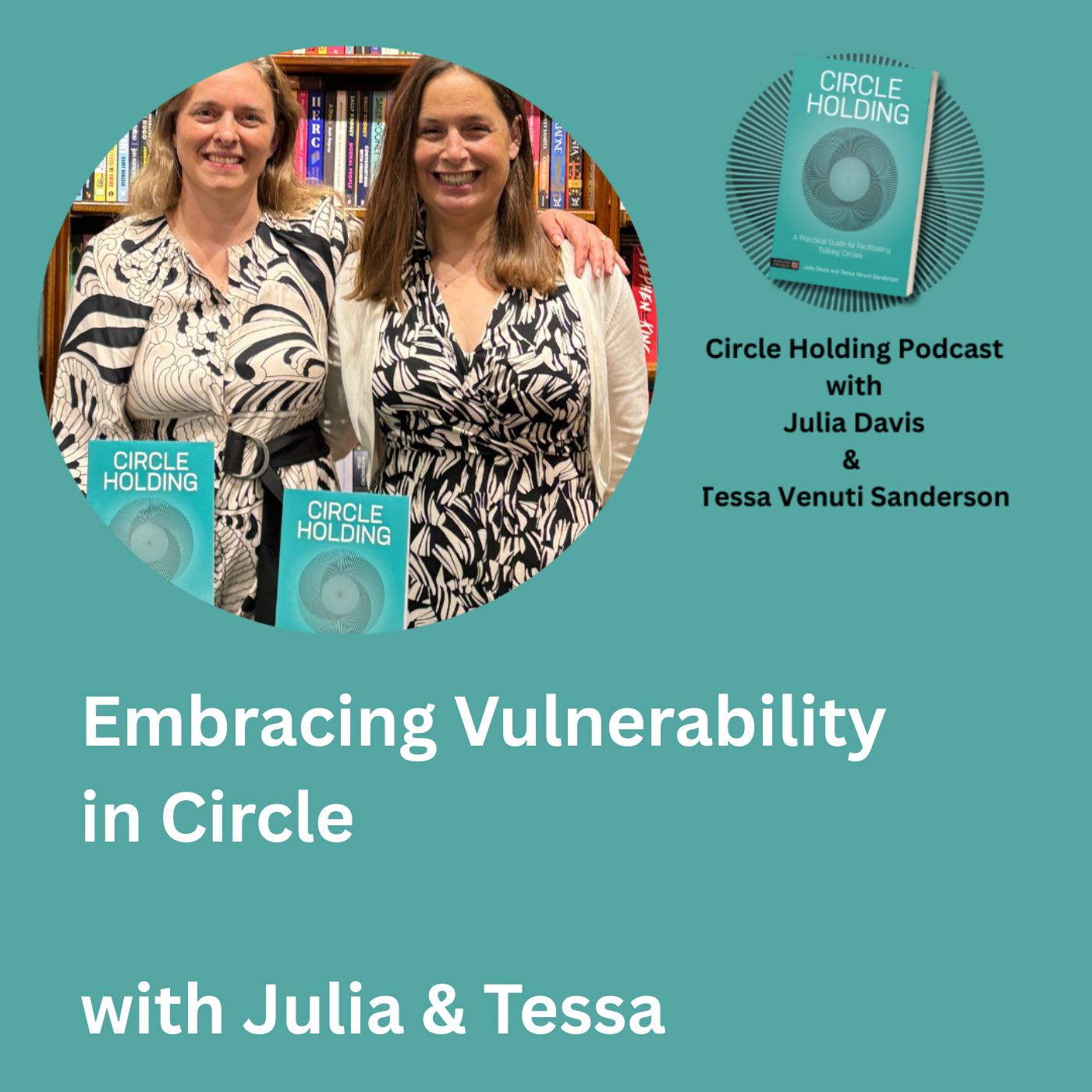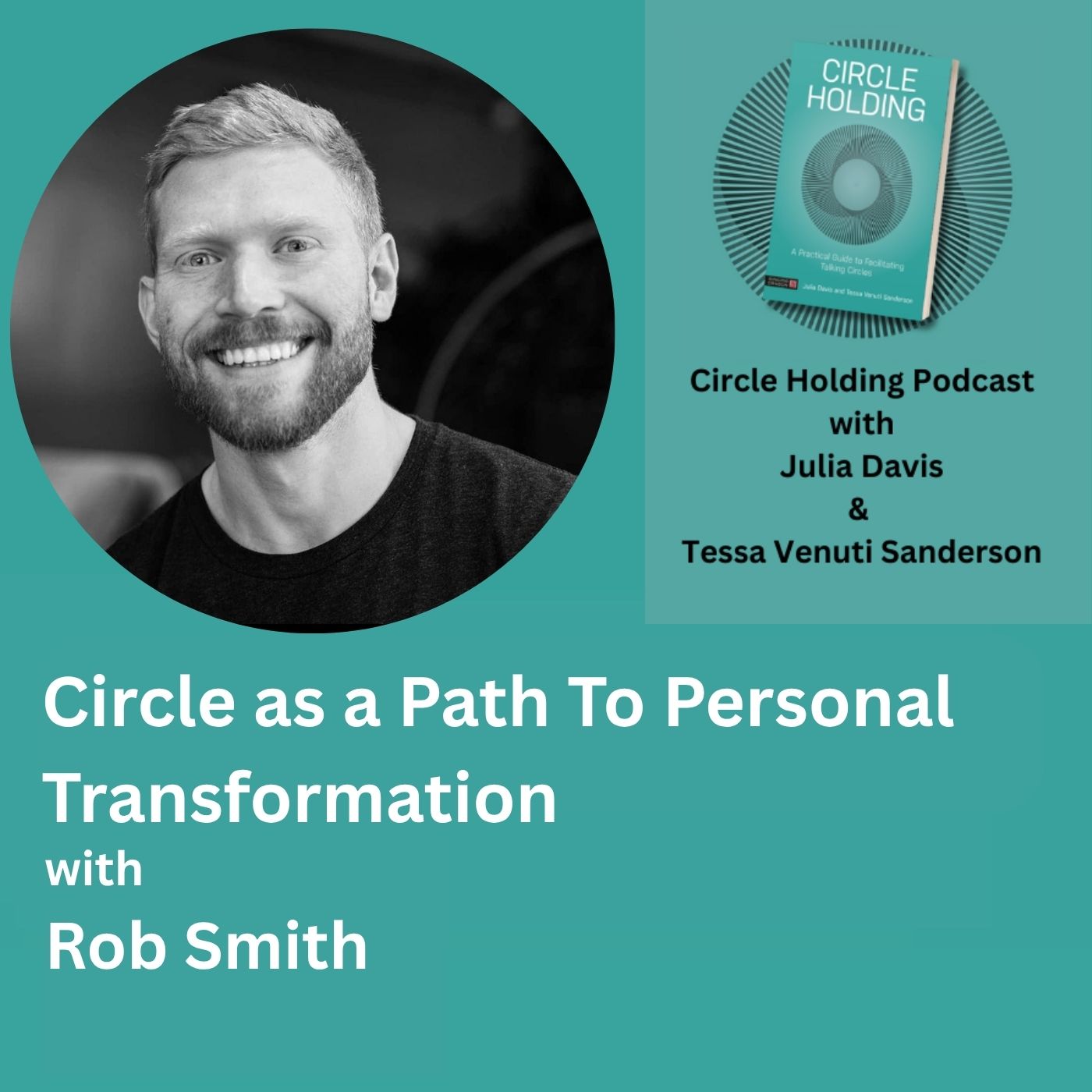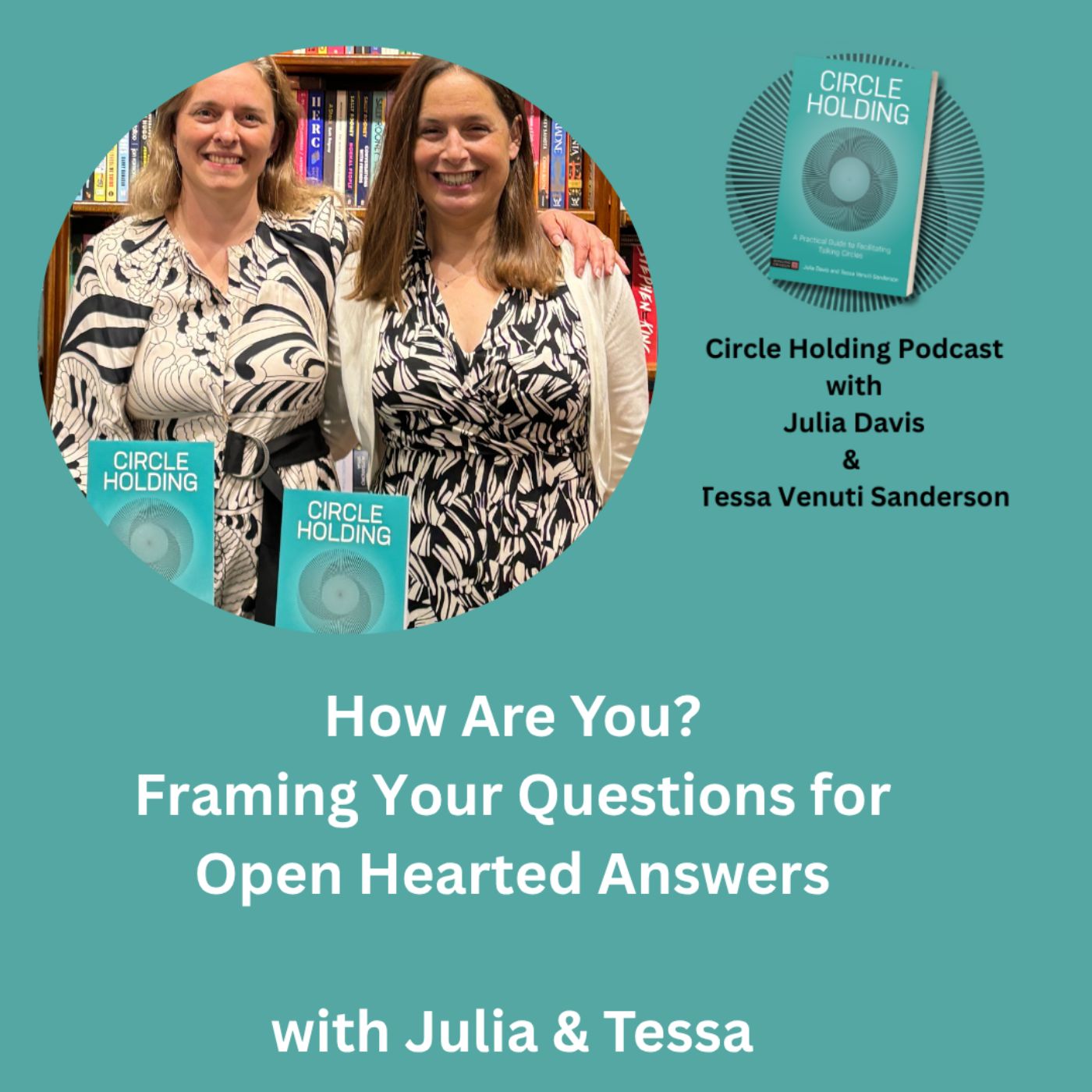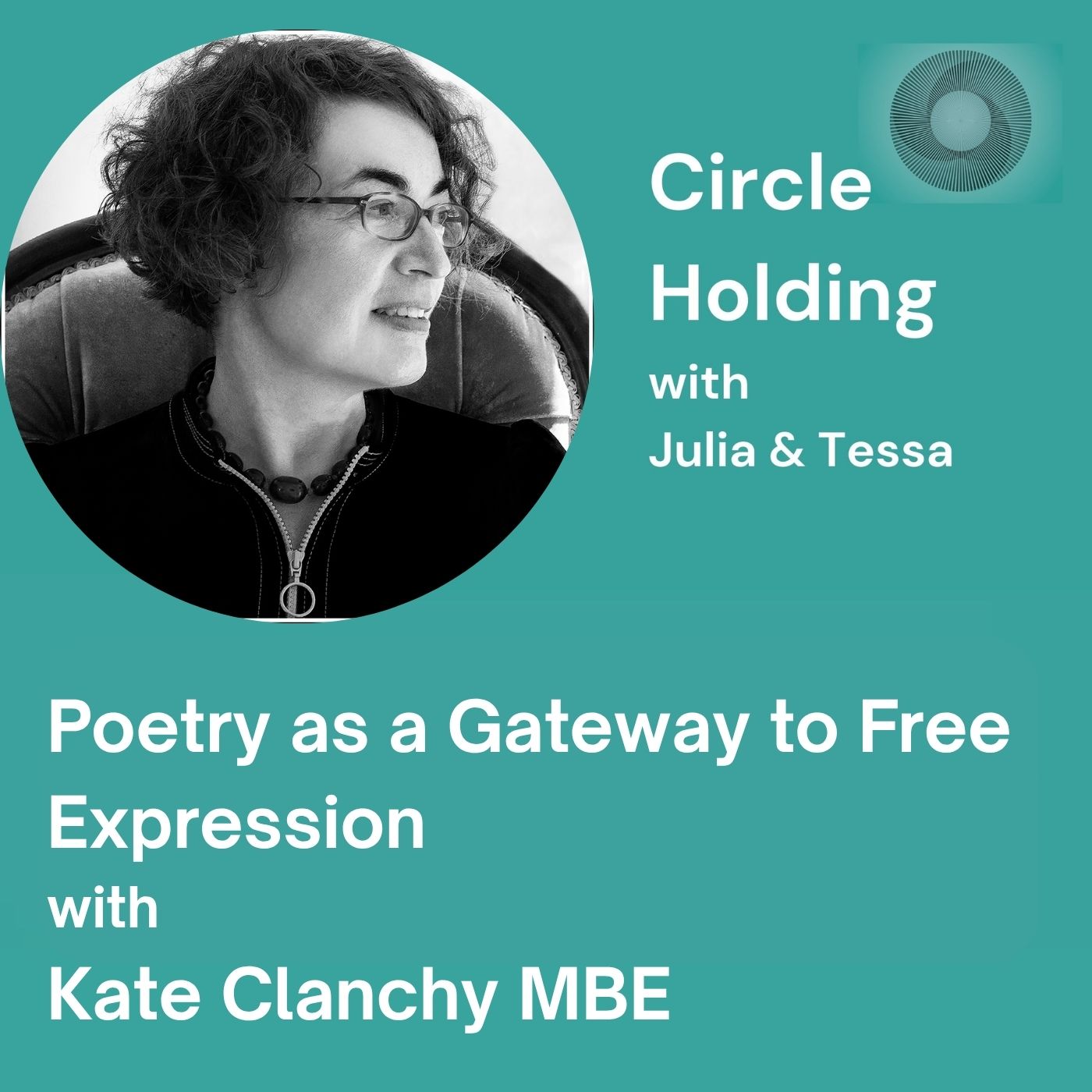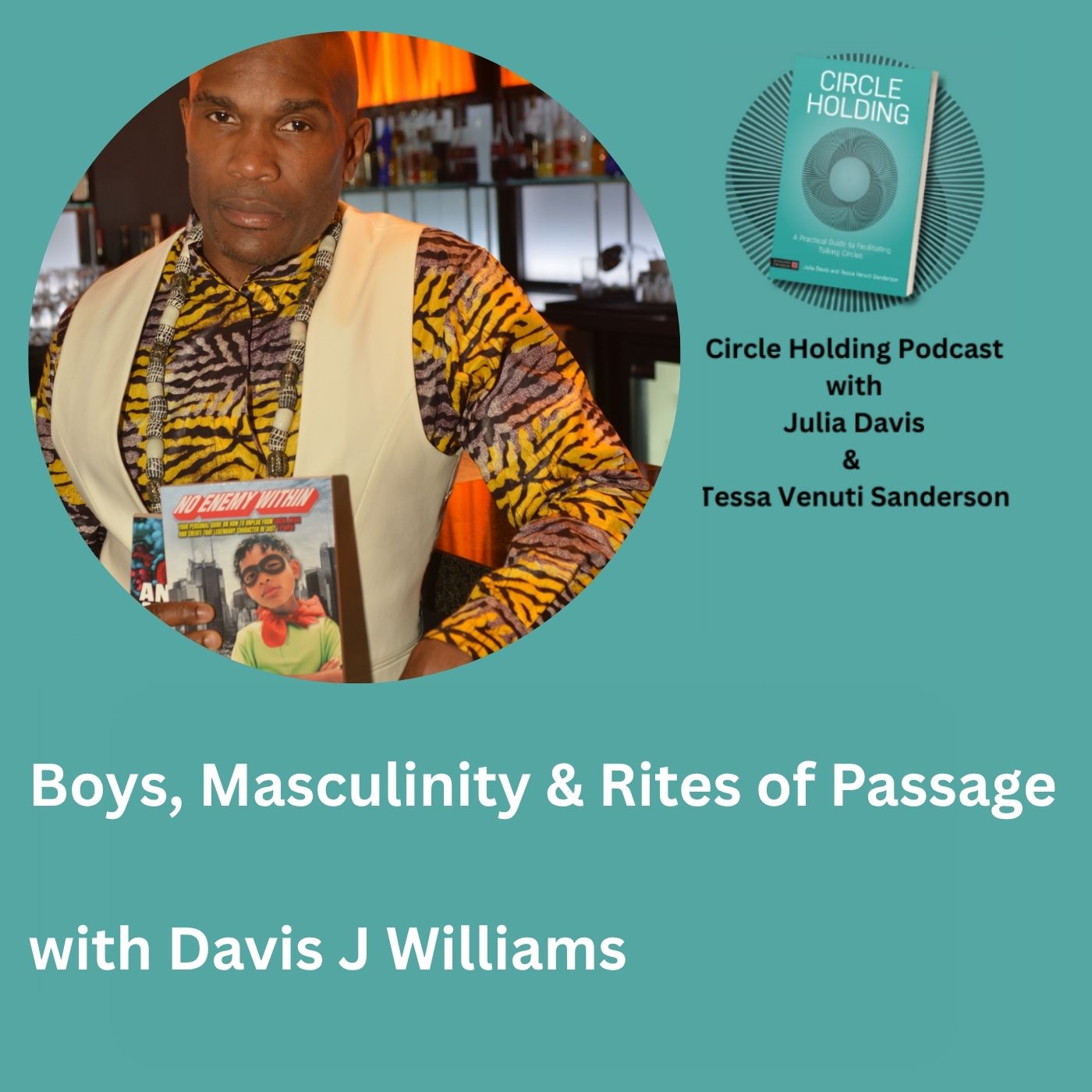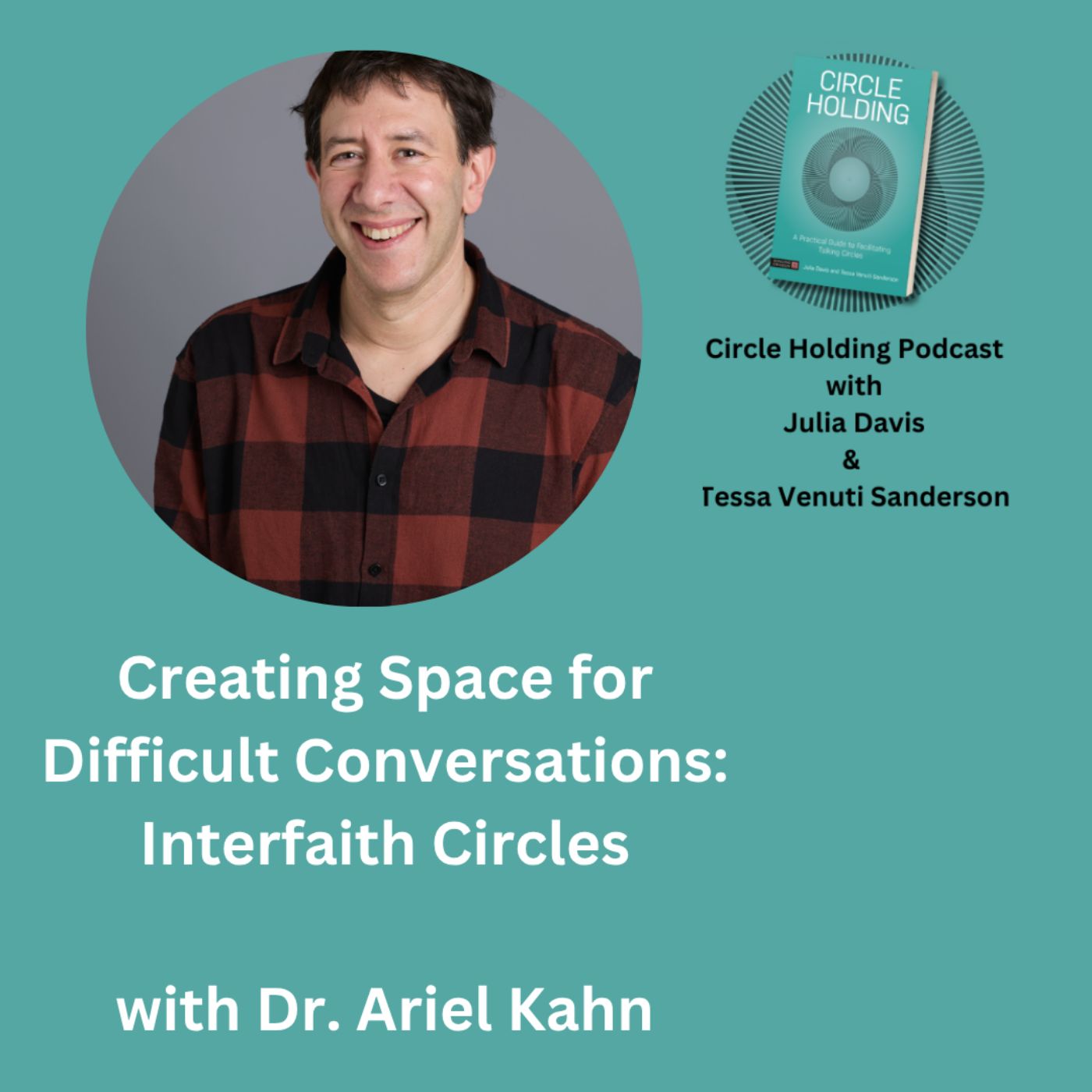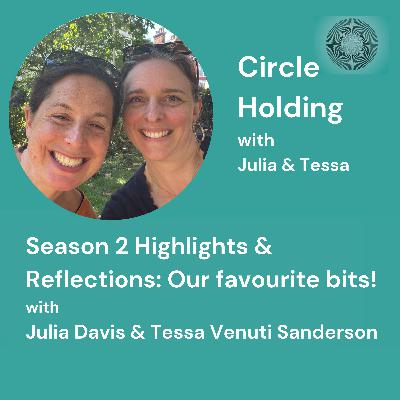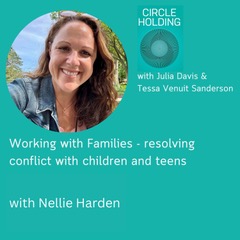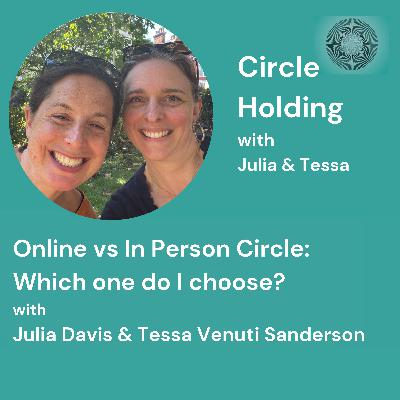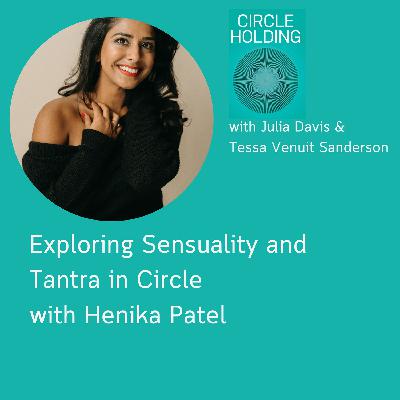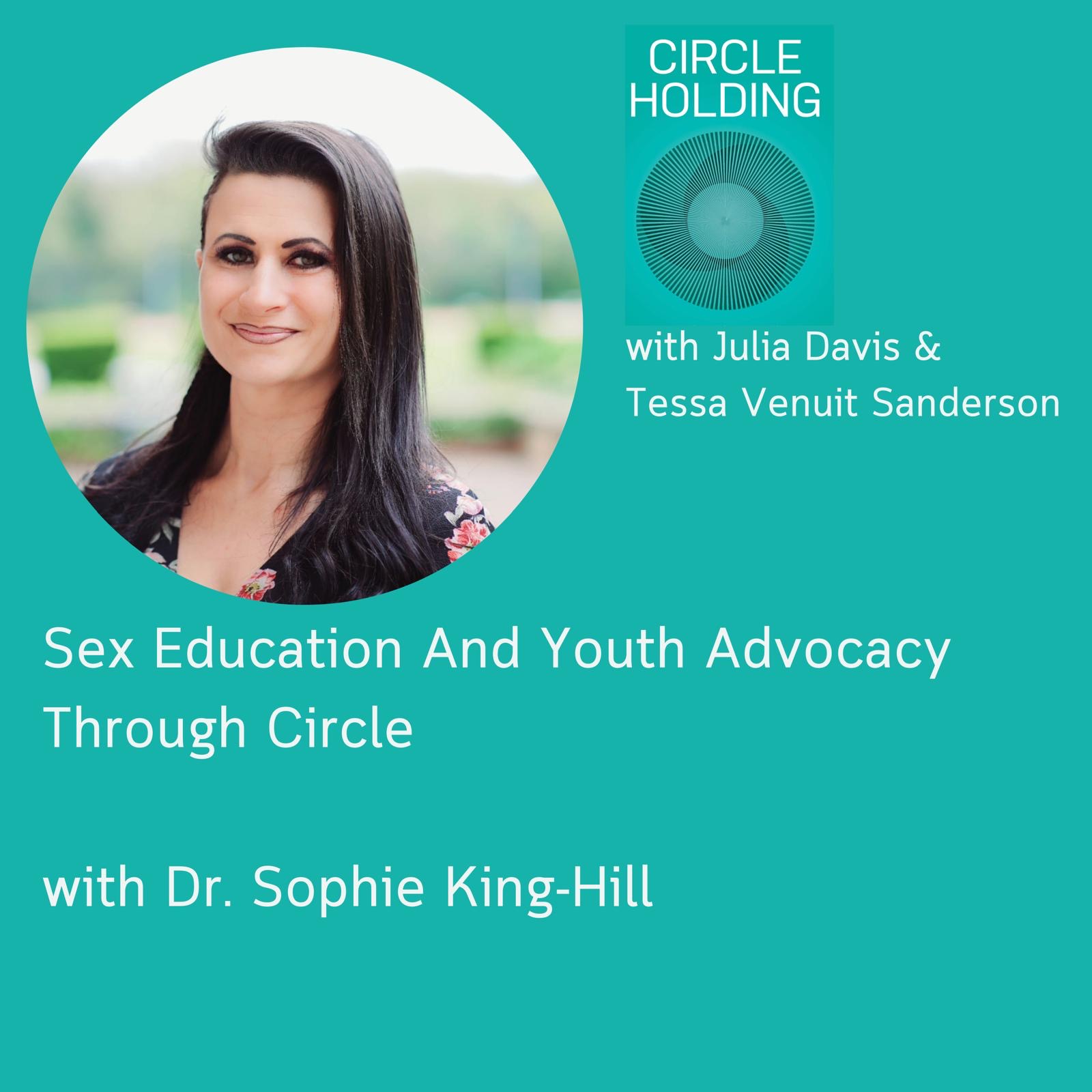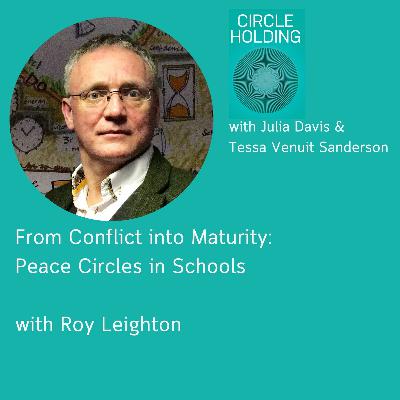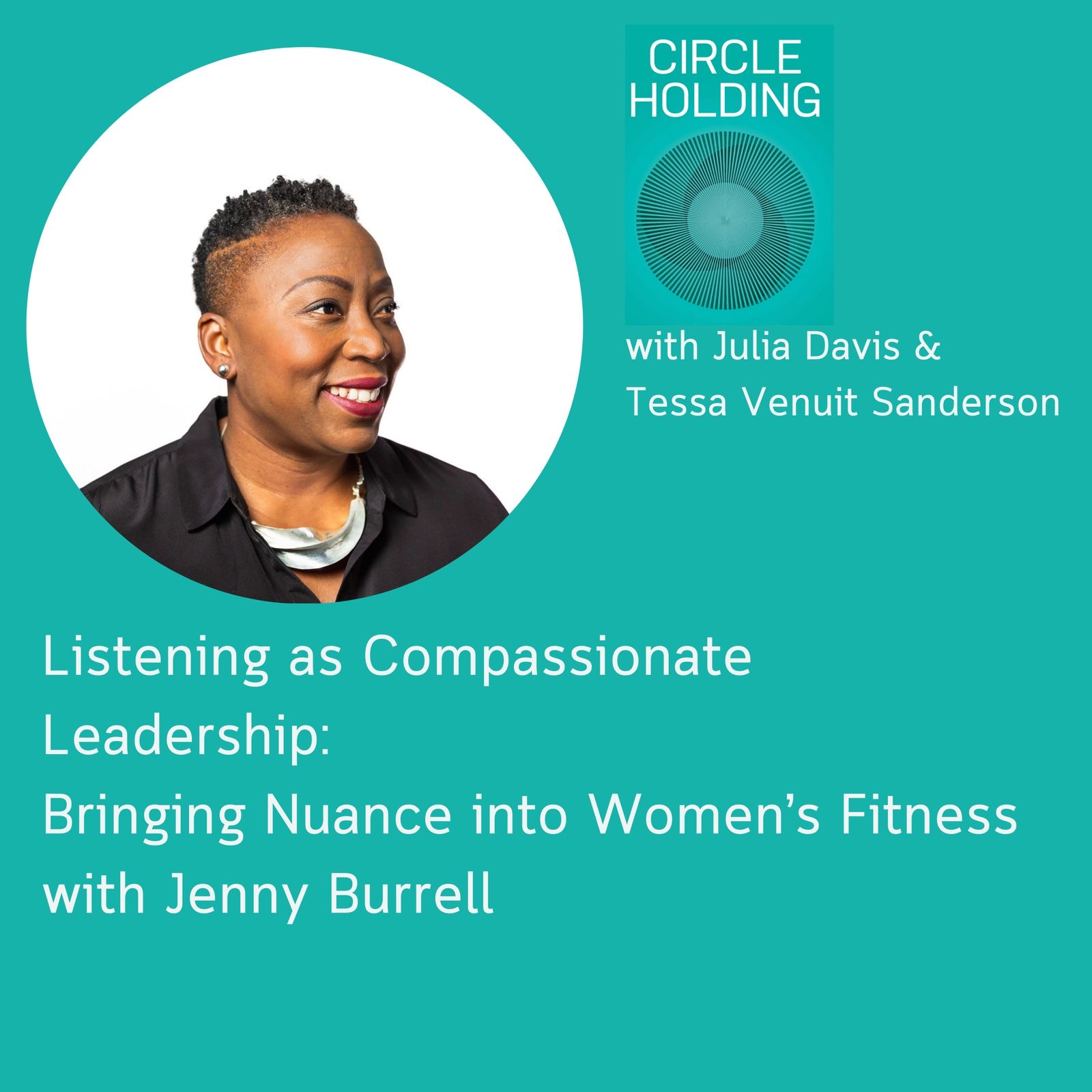Discover Circle Holding
Circle Holding

Circle Holding
Author: Julia Davis and Tessa Venuti Sanderson
Subscribed: 2Played: 6Subscribe
Share
© Circle Holding
Description
Do you run a group or a circle?
Join us for insights into circle facilitation. We speak to people who have created spaces where people can speak without interruption and listen without judgement. You will learn from people who have successfully facilitated groups in schools, universities, local communities, within government and in corporate environments. You will discover how these circles were created, funded and learn how you can create and build your own communities and circles. Listen to shorter episodes with Julia and Tessa for explorations into concepts about circle holding and practical tips:
* What is a talking circle?
* What is circle holding as a role?
* How do you manage big personalities and big feelings ?
* How do you support deep listening?
* Should it be free, by donation or a charge?
* Are talking circles just a bit woo woo?
* And favourite memories and challenging moments in circle time
Listen to longer interviews with diverse circle holders for fantastic insights into holding space:
Series 1
* Imposter syndrome and group dynamics with Kate Codrington
* Radical empathy with Narrative 4’s Lee Keylock
* Co-facilitation with Red School's Alexandra Pope and Sjanie Hugo Wurlizter
* Circle as a container for breathwork with Benedict Beaumont
* Working with children and talking about sensitive topics with Jane Bennett
* Creating space for health masculinity with Lee Stegels
* Funding what your community needs with Becoming Mum’s Liz Allum
* Including diverse voices through Participatory Democracy with Andy Pierce
Series 2
* Diversity and Inclusion in Circle with Mike Irwin of Mankind Project (part 1)
* Embodied Listening: Focusing as a Technique in Circle with Marta Fabregat
* Running A Circle at Home (and Plant Medicine) with Nicky Yazbeck
* The Nuts and Bolts of Circle Facilitation with Mike Irwin (part 2)
* Listening as Compassionate Leadership with Jenny Burrell
* Peace Circles in Schools with Roy Leighton
* Sex Education with Dr Sophie King Hill
* Sensual Circles with Henika Patel
You can help this podcast continue to broadcast by donating:
https://www.gofundme.com/f/spread-stories-of-communities-building-circles-of-hope/
Join us for insights into circle facilitation. We speak to people who have created spaces where people can speak without interruption and listen without judgement. You will learn from people who have successfully facilitated groups in schools, universities, local communities, within government and in corporate environments. You will discover how these circles were created, funded and learn how you can create and build your own communities and circles. Listen to shorter episodes with Julia and Tessa for explorations into concepts about circle holding and practical tips:
* What is a talking circle?
* What is circle holding as a role?
* How do you manage big personalities and big feelings ?
* How do you support deep listening?
* Should it be free, by donation or a charge?
* Are talking circles just a bit woo woo?
* And favourite memories and challenging moments in circle time
Listen to longer interviews with diverse circle holders for fantastic insights into holding space:
Series 1
* Imposter syndrome and group dynamics with Kate Codrington
* Radical empathy with Narrative 4’s Lee Keylock
* Co-facilitation with Red School's Alexandra Pope and Sjanie Hugo Wurlizter
* Circle as a container for breathwork with Benedict Beaumont
* Working with children and talking about sensitive topics with Jane Bennett
* Creating space for health masculinity with Lee Stegels
* Funding what your community needs with Becoming Mum’s Liz Allum
* Including diverse voices through Participatory Democracy with Andy Pierce
Series 2
* Diversity and Inclusion in Circle with Mike Irwin of Mankind Project (part 1)
* Embodied Listening: Focusing as a Technique in Circle with Marta Fabregat
* Running A Circle at Home (and Plant Medicine) with Nicky Yazbeck
* The Nuts and Bolts of Circle Facilitation with Mike Irwin (part 2)
* Listening as Compassionate Leadership with Jenny Burrell
* Peace Circles in Schools with Roy Leighton
* Sex Education with Dr Sophie King Hill
* Sensual Circles with Henika Patel
You can help this podcast continue to broadcast by donating:
https://www.gofundme.com/f/spread-stories-of-communities-building-circles-of-hope/
44 Episodes
Reverse
If you're new to the Circle Holding podcast, this episode will give you a glimpse into the interviews with diverse circle facilitators in Series 3.
Alex and Julia talked about:
• First encountered circles at Church with age group and older facilitator
• Came back to circle in his thirties with a lot more life experience
• Was a journalist in lifestyle and wellbeing who attended a circle out of curiosity and to write an article, to being asked to host one
• Started with a one hour circle for 6-8 weeks
• Is inspired by Men’s Speak, men’s circles in London
• Did a Mental Health First Aid Course, then coaching, then as a therapist, which opened doors into schools
• Did group work in schools with those who found the structure of school difficult- it gave space to relax and let their guard down
• One of guidelines was to be responsible for the group rather than being disruptive and stopping others from benefiting from the group
• Delivered ‘Becoming a man’ programme, part of Youth Guidance (US initiated) until funding withdrawn by government
• Shared programme through assembly and boys consented to participating through signed agreement
• There has to be buy-in from teachers and parents
Julia and Tessa talk about the importance of the welcome to circle, including the pre-circle preparation and how welcomes might differ according to your demographic.
Sophie and Tessa talked about:
• Moving away from right and wrong dynamics to a different way of engaging
• Restorative justice addresses harm after it has happened e.g. working with local police
• Restorative practice is about every interaction, shifting out of who’s right and wrong and to what really matters and how can we move forwards
• I-messaging means talking from my personal experience rather than you language or how it is (as if factual) – what’s true for me is indisputable and allows space for difference
• Speaking from multiple social truths
• Move away from divisive, binary debating to what matters
• Important to create a container for this different style of communicating, which involves getting consent to work WITH people rather than do a process to people
• Where there is conflict, a risk assessment needs to be done to determine if there is a willingness to shift – can ask, “What needs are being met by not moving and what needs are not being met by moving your views?”
• Having enough support is critical for facilitators – lack of support can show up as physical symptoms
• Debriefing helps to process the facilitation and move from reactivity to memory
• Constantly trying to prove rightness and wrongness is costly in terms of your nervous system
• Circle spaces can create a more equal space than other set ups – important to become ‘power literate’
• ‘Flat’ organisations usually hide power dynamics
• Ways of dealing with power differentials could be to decide the order in which people speak or not having everyone speak
• Want to avoid ‘group think’ where focus on sameness rather than making space for difference, although it’s understandable to focus on sameness to ensure belonging where there’s less power
• Bringing authenticity into communication is countercultural! E.g. Not to slip into saying “I’m fine” when you’re not.
• I-messaging is a way to be authentic and belong
In this episode, Tessa and Julia talked about facilitating appropriate vulnerability, considering how the fear of vulnerability can be a real barrier to attending a talking circle, but when being vulnerable in a safe space can be incredibly empowering.
In this interview Rob and Julia discussed:
• How Rob came to attend his first circle
• Had transferable skills from being a personal trainer, knew how to give person space to speak
• Co-facilitates the circle at Uncommon Man – bring different skills and give each other support e.g. debriefing and planning
• Also has support through Whatsapp group with other men’s circle facilitators
• Charges for men’s monthly circle and a lot of this goes back into promoting sessions, including having a videographer there for marketing e.g. clips of breathwork to demystify what happens at the circle
• For venues, think of spaces like offices that aren’t used in the evenings or co-working environments that may wish to support mental health
• Tips on how to get started with a men’s group
• Important to include moments of comedic relief in circles ie humour
• Relaxed start with non-alcoholic beers and music playing (also a guideline not to bring alcohol or arrive inebriated)
• With 20-25 men, will get agreement to guidelines with a hand raise
• After initial circle, go to triads because less intimidating than 121 because can move eye contact between the two others
• After group share with 5-10 people sharing, do breathwork session and final group share (time for everyone to speak)
• Do breathwork because it’s a powerful way to help release emotion
• Advice to new facilitator would be to have someone there to support you e.g. in setting space up, doesn’t have to be a co-facilitator and to give it a go with three friends.
In this episode Julia & Tessa talk about how to create space for examining feelings:
* Alternatives to "how are you" to create space for heart led conversation
* Creating questions that lead to sharing stories
* The value of lightness and humour
* Starting shallow, going deep
Tessa and Kate talked about
• Poems can create the shared space; poems that are appropriate for and speak to who is there
• Poetry as a joining-in activity to be shared aloud as in the tradition of oral history, not like a pressed flower in a book
• The poem creates a structure for people and children to organise their thoughts and even learn a language
• As a facilitator, she narrates the experience to support the momentum of writing: a series of cues of what they could try, reading parts of the poem again
• Poetry circles can work for very small groups and large ones, in person and online
• Create an encouraging environment by giving praise as they work, need to affirm their poetry because will tend towards being critical
• 90 minutes is a good amount of time to introduce the poem, have time for writing, then sharing
• Guidelines such as encouraging clapping are to help it be a positive experience – in groups not about an analytical approach but to ‘react to it like it’s a song.
• Kate will chose a line she thinks is really great from the poem as an introduction and if someone is shy and doesn’t want to read their poem, she will ask if it’s okay to read it for them
• She welcomes feelings to arise because they come when the person is ready to express them
• Important to give options for people to write about – she gives prompts that aren’t directly emotive, but often they will write something emotional from a light / general prompt e.g. food, something you remember
• A poem can feel like a safe space because it’s expressing something beautifully
• These poetry circles enable people to create their own safe spaces and get into a habit of expressing themselves
• Good sources of poems, other than Kate’s books of course, are ‘Being Alive’ and ‘Poetry Foundation’ and Tessa uses John O’Donohue’s ‘Benedictus’
In this episode, Tessa and Julia talked about how circle time can utilise the special environment of a retreat to deepen practices and sharing. They give some examples of where circle was used well and where it wasn't used at all.
In this interview with Davis J Williams and Julia Davis, they talked about:
• Moving from the competitive field of football coaching where some young people struggled to participate to supporting youth in the community
• In Gambia, found that young boys went through a rite of passage at 13 years old and saw the difference that made to their self-respect, discipline, self-control and ambition
• The journey to manhood builds throughout the boys’ lives, involving the whole community
• Wanted to bring this rite of passage experience to the boys becoming involved in violence in London whose parents are struggling alone to guide them
• Is important to involve parents to support their skills – developed the Parenthood Academy e.g. to create more intimacy at home like parents holding hands to model caring environment, eating meal together at a table
• Bring in cartoons and animations to talk about manhood to combat narratives on social media e.g. through talking about Batman story and trauma of losing his parents
• Programmes are run by volunteers from the community who want to support positive masculinity, rather than getting funding from local authorities or referrals from schools
• Too important to wait for public funding to be provided, parents pay subscriptions for the kids to attend because they value the programme
• Focus on building accountability to each other and the practitioners – a brotherhood – and once built rapport take them away for a deeper emotional experience of overcoming a challenge
• Sit in circle without distraction – no mask wearing, no bravado - finding connections with safe people rather than with gangs
• Alongside, Parent Lead is working with the parents to go on their own emotional journey and remembering their own goals, encouraging ongoing conversations between parents and youths
• Length of time youths are involved varies – longest is 4 years of holding space for transformation
• Peer leaders who volunteer come from different professions – all have in common that they have capacity to care
• Strict screening process in place
• Not easy because have to overcome the boys’ resistance to authority figures
• Have to allow conversation to go where the boys want to take it, even when uncomfortable or controversial, for someone to have the courage to give different opinions
In this conversation, Tessa and Julia talked about what open and closed circles are, what the benefits are and what you might consider when setting them up. Enjoy!
In this interview with Ariel Kahn and Julia Davis, they discussed:
Building relationships through a shared passion for literature
The importance of creating spaces where everyone feels comfortable
Changing the location of your circle
The use of food and drink to build community
How creative writing can be used as a bridge between communities
The power of curiosity
Literature as an olive branch for constructive conversations around difference
The use of literature as a tool for crossing cultural boundaries
Using circle in an education setting and the use of educational tools
Enabling listening amongst cultural conflicts: modelling disagreement
Circle as a space for digesting and formulating new ideas
Vulnerability as strength in LGBT+ circles
Stories as a vehicle for transformation
The use of props in circle
Workshops with an element of circle
Creating firm guidelines around anonymity - the Chatham House rules
In this episode, Tessa and Julia shared their highlights of the past 14 episodes including:
- the power of circles with children and young people (Roy Leighton, Sophie King-Hill and Nellie Harden)
- the importance of embodiment in talking circles for the participants and as a circle facilitator (Henika Patel and Marta Fabregat)
- the spectrum of circles from in your living room to an international, decades-old organisation (Nicky Yazbeck and Mike Irwin)
- the gift of being authentic as a group facilitator rather than being 100% perfect or professional!
In this episode, Tessa and Nellie talk about:
• Circles show up in all sorts of places like music groups and choirs
• Growth happens in relationship, not isolation, which makes circles perfect for change
• Modern life with devices and social media makes it hard for families to do active listening with each other
• Get clarity about your child’s learning language so your message gets through e.g. pictures, words, movement
• Playing loud music really helped to prepare the 12-18 year olds for listening later – think of your attendees’ needs
• A clarity board enables you to write or draw what you hear the other person is saying and check you’ve got it right (up to 5 things you hear)
• A facilitator can provide third-party validation where a change in relationship / communication is the goal
• Aim is to create a space to develop truth and trust with the circle so that the amygdala doesn’t shut down processing too much flight and fight
• Rules for Nellie’s session is ROCKS: Respect, Obedience, Compassion, Kindness, Self-discipline
• Can take a break if things get heated to re-establish calm or use ‘square breathing’ (also known as even breathing) with tracing the square on the leg
• Make the participants aware of defence mechanisms such as sarcasm, mocking, dismissing, interrupting, ignoring and distraction – these are destructive forms of communication and you need to take a break if it happens
• In terms of time keeping, you can put a leeway / buffer for latecomers but also at the end in case you are in something deep and don’t want to interrupt the process
• A firm boundary is having phones away
• Acknowledging the role of hormones in relationships is important in this age group.
In this episode, Julia and Tessa covered:
- The benefits of both online and in person circles
- The challenges of online and additional guidelines you might put into place
- The additional work that an in person circle might involve in setting up the physical space
- Examples of how both online and in person circles have worked with different demographics.
In this episode, Julia and Henika talked about:
- How she transformed from a lawyer into a facilitator of sensual arts after reasling she was disconnected from her body
- Circle time was a catalyst for the journey: it created a space to talk about taboo topics without shame
- Her ‘Shakti Circle’ focuses on the cultivation of power in the body (any body)
- Safety in a circle is objective and subjective so it’s important to clearly specify who the circle is for (including in the marketing) and she spends an hour of a 2-hour circle on practices for the self before moving into sharing ie “I” to “we”
- One practice she shares is Yang and Yin vision: Yang vision is how you see someone passing by (the colour of their clothes or hair) and Yin vision is looking to connect beyond the surface level
- She will talk for 5/6 minutes about the container of the circle, including about any gender being welcome, looking beyond the surface level etc
- Circle is a template for the rest of the world and your life: taking time to cultivate listening skills, how to express yourself in a way that feels safe in your body, develop empathy will ripple out into the rest of your day
- Circle is an opportunity to educate on these skills
- Social media can be a lonely experience – just you and a phone – where you can be left with shame from the gap between reality and expectations, but circle enables those experiences to be shared
- Shakti circles address unrealistic expectations from porn that’s not covered by sex ed
- Generally we are not taught what ‘No’ feels like in your body to then be able to communicate your ‘No’
- She is a first generation Indian woman who grew up with rituals at home
- The association of tantra with sex is a neo-tantra ie a new form, traditionally it is about a whole range of practices focusing on goddesses as a reaction to Hinduism where focus was on men practising and particular castes. Tantra is not a religion, but a counter culture.
- A practice she likes to include in circle is a simplified version of Nyasa - infusion divinity into the body by repeating a phrase such as “This is the beautiful hair of Julia” as you touch the hair, working around the body, with permission not to touch or giving other options
- It is important when sharing a practice to name the tradition or teacher to honour the teaching and steer towards cultural appreciation rather than cultural appropriation
In this episode, Julia Davis spoke to Dr Sophie King-Hill [(https://www.birmingham.ac.uk/schools/social-policy/departments/health-services-management-centre/staff/profile.aspx?ReferenceId=170453)](https://www.birmingham.ac.uk/schools/social-policy/departments/health-services-management-centre/staff/profile.aspx?ReferenceId=170453) talked about:
- Beliefs around sexuality and youth lead to discrimination against teenage parents
- Young people are guarded because of the stigma around teenage pregnancy
- Work to set expectations (guidelines is too formal) to create a safe space where young people can ask questions without feeling stupid or having the fear of ridicule
- She meets parents ahead of group meetings to know their history and potentially upsetting issues
- Key is thinking that you're equal to them, that all voices are valid, and facilitator is here to learn and prepared to be wrong
- Setting is informal - no need to ask to go to the toilet, whether they can eat something, get up, have a headphone in
- ['A Student's Guide to What You Don't Know' booklet](https://www.birmingham.ac.uk/schools/social-policy/departments/health-services-management-centre/research/a-students-guide-to-what-you-dont-know) was produced by young people to give to teachers and educators
- Person teaching sex ed has to be comfortable with the topic
- Support critical thinking about what they find online and be able to discuss in a safe space without judgement
- Important to give space to think through contraception rather than making a last minute decision
- Smaller groups for Sex Ed would be ideal and in a circle format - teachers can be transparent about being nervous about trying a new format
- Ask anonymously what the young people want to know - same paper, pen for each person so no-one singled out
- Need to be ready to be responsive to what comes up
- If parents don't want their children receiving Sex Ed, gently share research with them showing how it helps kids to be safe in a highly sexualised environment
In this episode, Tessa and Roy talked about:
*His involvement in Peace Circles being rooted in his childhood with Adverse Childhood Events
* How circles can increase inclusion and belonging in schools – in 7 years only 7 days of exclusion across the whole school
* Using the framework of the ‘Four Rooms’ – intellectual, emotional, practical and spiritual in every circle – to deal with conflict quickly through structure of ‘When you…’, ‘I feel….’, ‘because….’, ‘what can we do about it?’
* Different levels of circle from senior management – with mixed staff (dinner ladies, ground staff) and mixed year groups
* Thrice weekly meetings called ‘family circles’ by children
* Staff trained in holding circle and moving through restorative, chaotic and self-organising circles
* Circle works to re-educate away from simple hierarchy to transcend and become more inclusive
* Circles can hold conflict and prevent escalation
* Intergeneration circles build maturity in younger members
* Circles provide spaces where people can be called out but lead to change rather than conflict and unhealthy confrontation
In this episode, Tessa and Julia discussed the technique of Yoga Nidra relaxations within circle time:
- Useful settling technique in circle
- Can be used for all different audiences (e.g. pregnancy, kids, perimenopause, fatigue
- The participants can lie down or sit for this technique and should be as comfortable as possible
- The facilitator stays sitting and alert to deliver the nidra - for the training you do not need to be a yoga teacher
- There are different components in a nidra including body mapping, opposite qualities, setting an intention and themes can run throughout, including visualisations.
- You can find scripts to read out, but this does not have the same effect as a nidra you have created yourself and are delivering without reading (bullet points are fine as a reminder)
- Yoga nidras can vary in length and provide a boost to energy
- Circle facilitation can also support your movement / meditation classes: to check-in without the talking taking over the session, build connections, get feedback about practices and check out before the end of the session
In this episode, Tessa and Jenny Burrell (https://www.burrelleducation.com/) covered:
- Learning the value of silence
- How online circles can be just as powerful as in person ones but guidelines may need to be slightly different
- You might think group coaching is about really cool questions but it's mostly about listening
- The difference between feedback and reflection in circle
- As group facilitators or circle holders we can be human rather than perfect and this makes us into more compassionate leaders
and much more!


